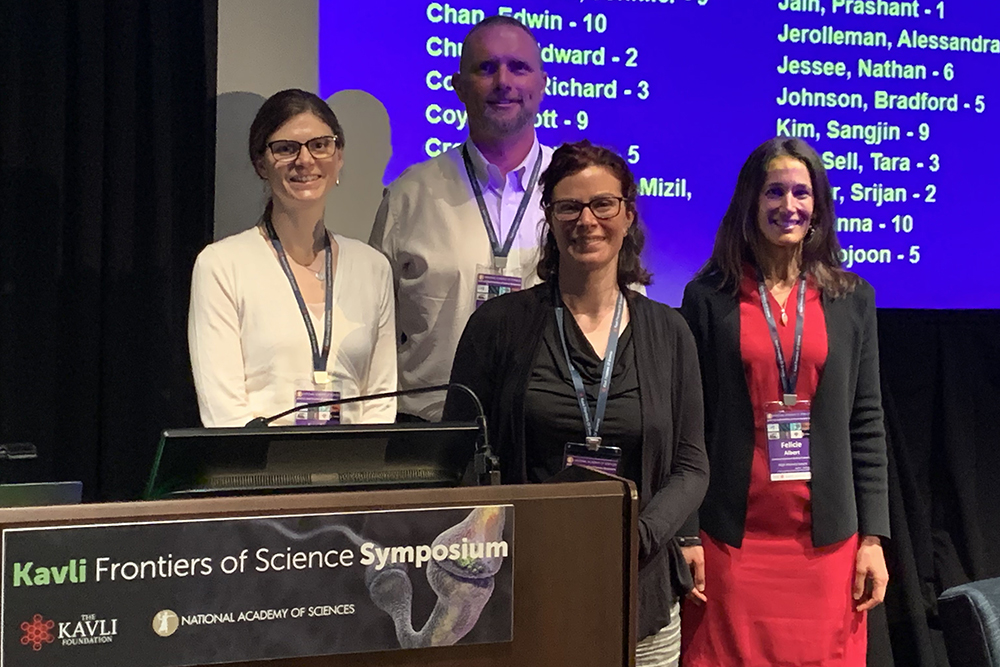Louise Willingale named Kavli Fellow by the National Academy of Sciences

From left: Louise Willingale (University of Michigan), Cameron Geddes (LBNL), Heide Ibrahim (INRS, Canada), Félicie Albert (LLNL).
Professor Louise Willingale has been named a Kavli Fellow by the National Academy of Sciences. She served as a featured speaker at the 2022 Kavli Frontiers of Science U.S. Symposium, which is the Academy’s premiere activity for distinguished young scientists.
In her talk, “Laser Driven Magnetic Reconnection,” Willingale explained how ultra-high intensity laser plasma interactions can be used to recreate conditions in the laboratory to explore the microphysics occurring around the most extreme astrophysical objects, such as X-ray binary disk corona, active galactic nuclei, or gamma-ray bursts.
Understanding magnetic reconnection phenomenon across a large range of conditions may help with other problems closer to home. For example, giant solar flares, powered by magnetic reconnection, in the past have been accompanied with coronal mass ejections (CMEs) which reached the earth, and for a time interfered with GPS signals and radio communications. These events can also interfere with orbiting satellites and power systems.
Magnetic reconnection is also relevant to the process of nuclear fusion, which promises an almost inexhaustible source of energy – if the engineering challenges can be overcome.
Willingale also spoke about the ZEUS laser, the University of Michigan’s new three-petawatt laser user facility funded by the National Science Foundation, which will help advance the ability of researchers to study high-field conditions including the magnetic fields generated with extremely high intensities. Willingale is the Associate Director of ZEUS, which is scheduled to begin operation later this year.
“Representing high power lasers at the Kavli symposium was an honor and an amazing experience,” Willingale said. “I’ve never been involved in a meeting covering such a breadth of topics, such as COVID vaccine development, language and communication, misinformation and social media, and more. Everyone brought such enthusiasm and excitement to their areas that lead to so much discussion and engagement.”
Willingale earned her PhD in Plasma Physics at the Imperial College, London. She joined the University of Michigan in 2008 where she worked as a postdoctoral researcher and later as an assistant research scientist in the department of Nuclear Engineering and Radiological Sciences. She joined ECE as an Assistant Professor in 2014, and she received an NSF CAREER Award in 2018.
About the Kavli Frontiers of Science Symposium
Attendance is by invitation only, and attendees are selected from among award winners for early career scientists in the U.S. and abroad. Attendees include Sloan Fellows, Packard Fellows, MacArthur Genius Grantees, Pew Fellows, Searle Scholars, and Presidential Early Career Awardees for Scientists and Engineers. Since the inception of the program in 1989, over 5,000 distinguished young scientists have attended a Kavli symposium and are designated Kavli Fellows.
 MENU
MENU 
